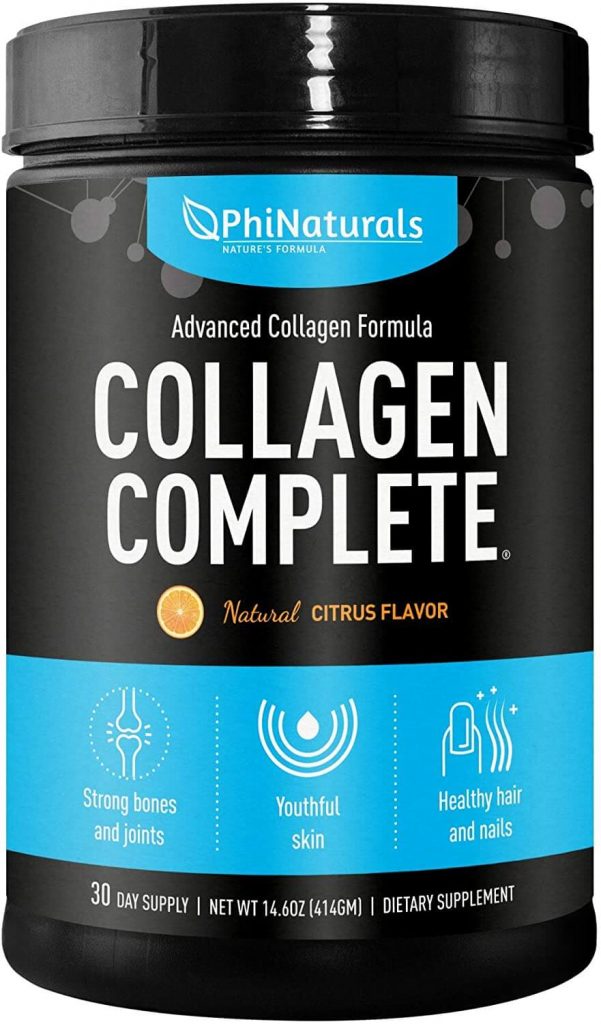If you’ve been reading our stuff for a while (or follow us on social media), you know we already have tons of guides and tips to help you begin improving the quality of your skin.
Still want more you say? Still struggling with less than ideal skin?
Part of our philosophy has been to not be afraid of trying new things and adapting them into our routines if they work. That’s why today we’re going to take a look at this supplement called collagen which has been steadily increasing in popularity over the years and see how we can utilize its unique properties for some next-level skin improvements.
Giving props where its due, Asia and in particular Japan, have been leading the “collagen-for-better-skin” wave. Already found within many of their anti-aging cosmetics, Asian brands have been promoting the supplementation of collagen as a method to fight off wrinkles and keep skin young long before it became popular across the sea.
We decided to look at what the science says and if collagen really does work as well as they say.
People have been taking collagen to improve their skin for years whether through diet or supplements but there have only been a few studies testing its effectiveness and most of the evidence has been anecdotal up until recently. Thankfully, the results have been promising.
Is There Evidence Collagen Really Works?
First let’s take a look at two different animal studies to help explain how collagen works.
In the first study, hydrolyzed collagen given to mice actually slowed down the process of photo-aging by protecting their skin from UV radiation. Photo-aging is the primary cause of aging skin in humans and it’s the reason why you should be wearing sunscreen and stay away from tanning beds if you want to keep your skin looking young for as long as possible. We talk more about how tanning and the sun affect your health and skin here if you’re interested.
Anyways, the researchers in this study exposed the lab mice to UVB rays three times a week for five consecutive weeks. Some mice were given collagen supplements, while other mice were not. What the researchers found was that the skin’s hydration (water-content) was decreased in the mice by the UVB light. This should be no surprise as it’s the reason why moisturizing is beneficial for every skin type, no matter if its dry, oily, normal or combination.
Where things really get interesting is that the mice that were given the collagen supplement did not experience a decrease in skin hydration. They also found that the outer layer of skin thickened in the mice that were not given the supplement while those that were given collagen were spared and retained their soft skin.
By the end of the experiment the researchers observed that there was also less type I collagen in the skin of mice that were not given the supplement than in those that were. They speculate that the collagen supplement helped stimulate their skin cells enough to resist damage from the UV radiation.
In the second study, lab rats that were fed hydrolyzed collagen supplements alongside their regular food had increased amounts of types I and IV collagen in their skin and produced fewer winkle forming enzymes by the end of the experiment. This enzyme (matrix metalloproteinase-2) breaks down type IV collagen and is partly responsible for the development of lines and wrinkles in aging skin.
And if you’re wondering what the difference between “hydrolyzed” collagen and “regular” collagen is, think of hydrolyzed collagen as a broken-down form that is more easily digested and usable by your body.
How Collagen Will Help Your Skin
So now the next obvious question is: “Does it work for humans?”
Well collagen serves a similar function in your body as it does in mice and other animals. Being the most abundant protein in humans, collagen is the main connective tissue which can already be found in your skin, teeth, eyes, cartilage, and bones among other places. Think of collagen as the cement or glue which holds your body together.
As you saw earlier, collagen is classified into different types which also serve different purposes. In fact, there are over 20 different types of collagen already found within your body. While supplementing, for the greatest skin benefits you want Types I and III which are the most important for skin quality and are commonly paired together. Type II collagen is found in cartilage and can also be helpful but is not quite as important for improving your skin.
Since we’re only interested in the aesthetic benefits, we won’t get into how ingesting hydrolyzed collagen can help improve bone and joint health. We strongly encourage you to research these benefits yourself if you’re interested in them.
As for your skin, two clinical studies sponsored by Peptan found that ingesting collagen alongside vitamin C, improved the skin elasticity of participants by 19%, their skin’s hydration level by 28% after 8 weeks, and diminished the appearance of existing wrinkles by 26% after 12 weeks.
As we mentioned above, UV radiation destroys collagen which harms your skin’s structure and reduces its suppleness. By ingesting hydrolyzed collagen peptides, you increase the density of the collagen already found within your skin. The end result is your skin now has a better “support” system underneath it and is better equipped to handle the downsides of aging and sun damage.
Collagen production naturally declines with age at a rate between 1-2% each year after the age of 25. This is most noticeable in our 30s which shouldn’t be a surprise. This is when most people will begin forming their first wrinkles. For some of us it will be even earlier.
One drawback to supplementing with hydrolyzed collagen is that you’re going to have to stick with it to see noticeable results. Did you notice how most of the studies we talked about above were conducted over a span of several weeks? Don’t expect an overnight miracle but be confident knowing that after a month or two there’ll be visible improvements to your skin and and it’ll look younger than it does now.
Simply put, success stories from people who have been supplementing with collagen for years and evidence from studies that have tested its effectiveness both suggest it’s worth looking into for anyone interested in preserving their youthfulness and appearance.
Hydrolyzed Collagen Supplement Recommendation
If you’re looking for the highest quality collagen supplement you can take for youthful and more attractive skin, we recommend Collagen Complete by Phi Naturals.
Here’s why we prefer this collagen supplement over other higher-end brands:
- Each serving is 10,000 mg! That’s why this supplement is a powder and not a capsule or pill. Why is 10,000 mg. superior? It’s closer to the dosage used in studies like the ones we linked to above which test collagen’s effectiveness. Most other supplements don’t provide anywhere close the optimal dosage for maximum skin benefits.
- It contains Vitamin C (this is very important — as we mentioned above Vitamin C enhances the properties of collagen and allows for better absorption by your body) and other collagen stimulating compounds like papainfound in papaya (also why papaya is one of our 10 most recommended foods for better skin). So it doesn’t just supply your skin with collagen but actually encourages it to continue producing it on its own.
- It also contains hyaluronic acid, an effective and popular skincare ingredient which works as a hydrator in tandem with collagen to keep your skin moisturized and elastic. Inelastic skin (when it feels tight) only accelerates ageing and wrinkles. It’s one of the reasons why pretty much everyone, no matter your age or skin type, needs to be moisturizing.
- Contains primarily collagen types I and III which are the most beneficial for skin and also gives some added joint and muscular relief with the inclusion of Type II. These are the “big three” of the collagen types for supplementation but it also contains 15 other types in addition which aren’t as important for skin per say but will still benefit your body nonetheless.
As always, we encourage you to test things out to see what works for you. Older people will find that their skin benefits from ingesting collagen more than younger folks but if you’re in your twenties or even younger and find that collagen has improved your skin — let us know. We’re always interested in building up a reference base and by telling us your experience you can help others who are on the fence too.
So what do you think? Have any opinions about collagen supplements? Success stories you can share? Let us know!





